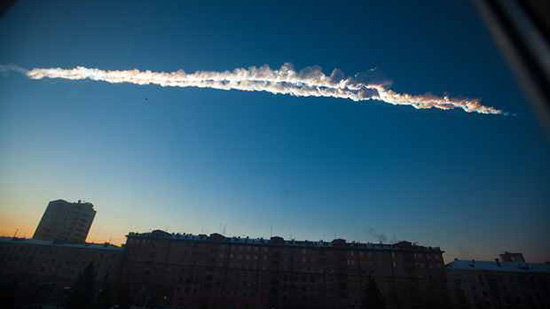
A meteorite plunging towards Russia exploded over the country’s Ural Mountains early Friday morning (Feb 15) U.S. time, causing several giant explosions and forcing many schools and offices to be evacuated.
Nearly 1,200 people were reportedly injured as a result of the frightening blast sent out a huge shock wave, shattering countless windows in its path. Witnesses in Russia say that their cellphones stopped working and windows were blown out as the meteor exploded in the air.
According to estimates from the Russian Academy of Sciences, the meteor measured about 49 feet wide, weighed around 10 tons and was traveling at roughly 10 to 12 miles per second (about 30,000 to 45,000 mph) when it disintegrated into pieces about 20 or more miles above the ground.
Though the asteroid wasn’t considerably large, Andrew Cheng of the Johns Hopkins Applied Physics Laboratory explains that even small asteroids pack a mean punch, comparing the impact to that of an atomic bomb.
“It doesn’t take a very large object. A 10-meter size object already packs the same energy as a nuclear bomb,” Cheng, who led a 2000-2001 mission for NASA to orbit and land on an asteroid, told FoxNews.com.
Coincidentally, a much larger 150-wide asteroid named “2012 DA14” passed over earth at around 2:20 p.m. EST, though astronomers are certain that this asteroid, which was over 17,200 miles away from Earth, had nothing to do with the one that hit Russia earlier today.









